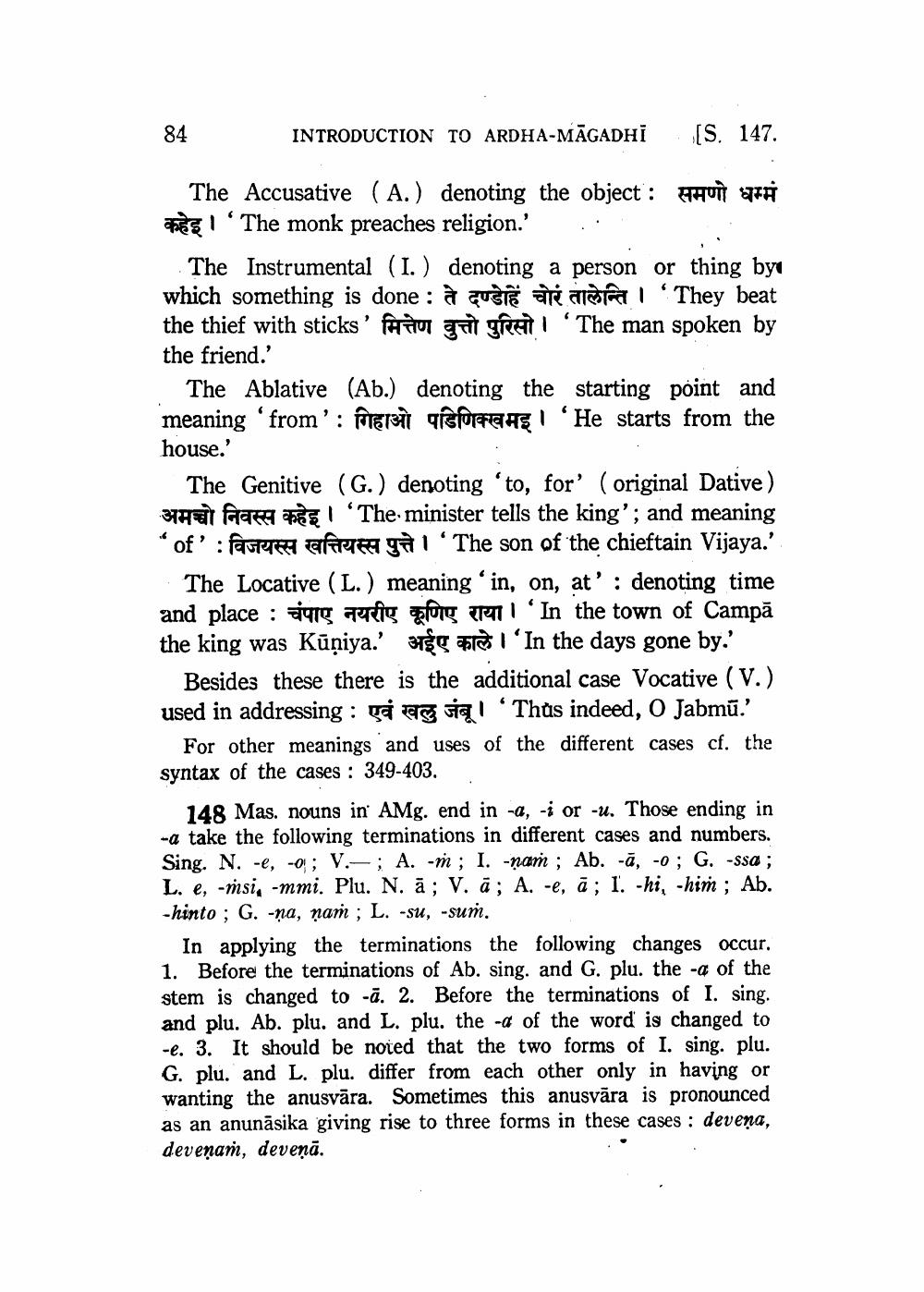________________
84
INTRODUCTION TO ARDHA-MĀGADHİ
(S. 147.
The Accusative (A.) denoting the object : HAUT NTFR
'The monk preaches religion.' The Instrumental (I.) denoting a person or thing byo which something is done : à CuSe ar a t I They beat the thief with sticks' ATO ga ORENI 'The man spoken by the friend.'
The Ablative (Ab.) denoting the starting point and meaning 'from’: PETSİ Tisfres ! 'He starts from the house.'
The Genitive (G.) denoting 'to, for' (original Dative) the fact that I 'The minister tells the king'; and meaning * of' : faserka affrir GĦT I 'The son of the chieftain Vijaya.'
The Locative (L.) meaning in, on, at': denoting time and place : igre gerig ootu I ' In the town of Campā the king was Kūņiya.' 37 gares i 'In the days gone by.'
Besides these there is the additional case Vocative (V.) used in addressing : gai eg cią! 'Thus indeed, O Jabmū.'
For other meanings and uses of the different cases cf. the syntax of the cases : 349-403.
148 Mas. nouns in AMg. end in -a, -i or -u. Those ending in -a take the following terminations in different cases and numbers. Sing. N. -e, -o; V.-; A. - ; I. nam ; Ab. -ā, -0; G. -ssa ; L. e, -risi, -mmi. Plu. N. ā; V. ā; A. -e, ā; I. -hi, -him; Ab. -hinto ; G. -ņa, ņam ; L. -su, -sum.
In applying the terminations the following changes occur. 1. Before the terminations of Ab. sing. and G. plu. the -a of the stem is changed to -ā. 2. Before the terminations of I. sing and plu. Ab. plu. and L. plu. the -a of the word is changed to -e. 3. It should be noted that the two forms of I. sing. plu. G. plu. and L. plu. differ from each other only in having or wanting the anusvāra. Sometimes this anusvāra is pronounced as an anunāsika giving rise to three forms in these cases : devena, devenam, deveņā.




